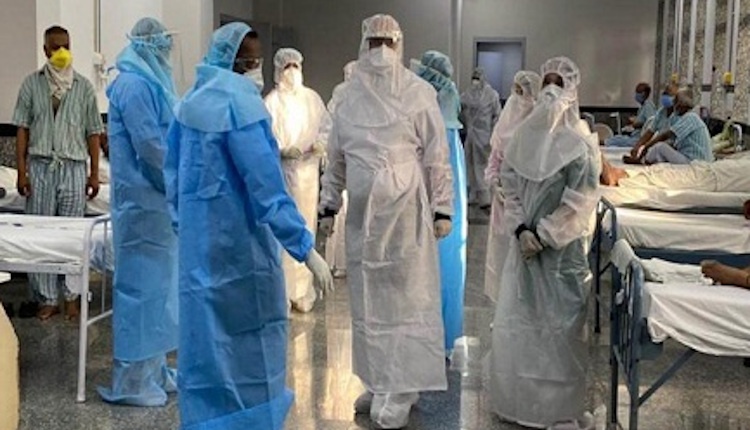
COVID-19, immune-mediated inflammatory diseases and vaccines: Statale University position paper
Immune-mediated inflammatory diseases and Covid-19 vaccines: to propose a qualified point of view on the management of COVID-19 vaccination for patients with immune-mediated inflammatory diseases (IMIDs) and to identify risk groups according to the different types of diseases and their specific chronic therapies
These are the objectives of the Position Paper developed by the researchers of the Coordinated Research Centre on IMIDs, coordinated by Sandro Ardizzone, professor at the Department of Biomedical and Clinical Sciences “L. Sacco” of the Statale University of Milan.
Published in Frontiers in Immunology, the paper aims to focus on the administration of vaccines against COVID19 in people affected by immune-mediated inflammatory diseases (IMIDs)
These include chronic inflammatory bowel diseases (ulcerative colitis and Crohn’s disease), rheumatic diseases (rheumatoid arthritis), immune-mediated glomerulopathies, skin diseases (autoimmune bullous diseases and atopic dermatitis), oculopathies (uveitis and retinopathies), type 1 diabetes mellitus, chronic pneumopathies (severe asthma, sarcoidosis, etc).
The clinical studies on vaccines available today have, in fact, provided results on the general population, showing high efficacy with minor adverse events.
However, specific data on their efficacy and safety in patients with IMIDs are still lacking.
Hence the need felt by researchers at the Statale University to draw up a specific Position Paper on the subject, also in the light of giving priority to some categories of vulnerable patients over others.
Immune-mediated inflammatory diseases and vaccines against Covid-19: the Statale University position paper
In particular, the paper proposes, based on currently available literature, a priority grading that takes into account demographic data and geographical differences, different occupational exposures and risk factors related to IMIDs, including any conditions that may be grounds for exclusion or delay of vaccine administration (e.g. patients with history of severe allergy, ongoing SARS-CoV-2 infection, patients on steroids or rituximab).
The rapidity with which various vaccines are becoming available,” explain the authors of the paper, “does not allow, at least for the time being, to answer several questions concerning the existence of possible differences in the response to the vaccines currently in use, how the different immunosuppressive and biological drugs used to treat IMIDs may affect the nature and duration of the immune response, whether two doses of vaccine will be sufficient, and whether they may affect the severity of COVID-19 or are also effective in protecting against asymptomatic infection.
To answer these questions, specific studies on different subpopulations of patients with IMIDs will be needed.
To this end, a registry prospectively enrolling patients with IMIDs vaccinated against SARS-CoV-2 is essential for post-marketing surveillance of vaccines”.
Read Also:
Covid, University Of Pisa Research: Acute Stress For 40% Of Healthcare Personnel


